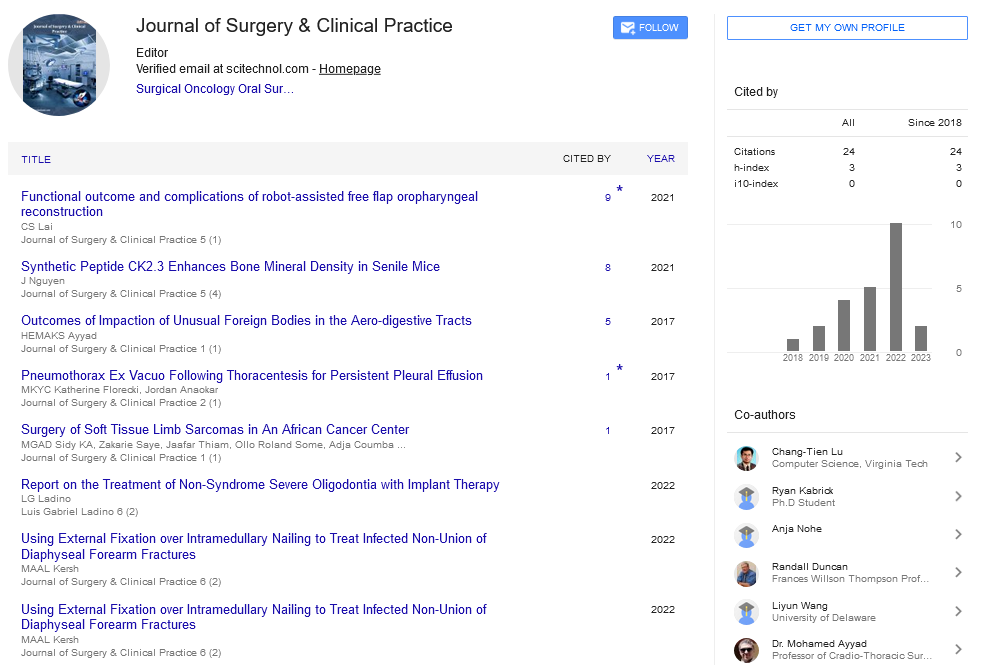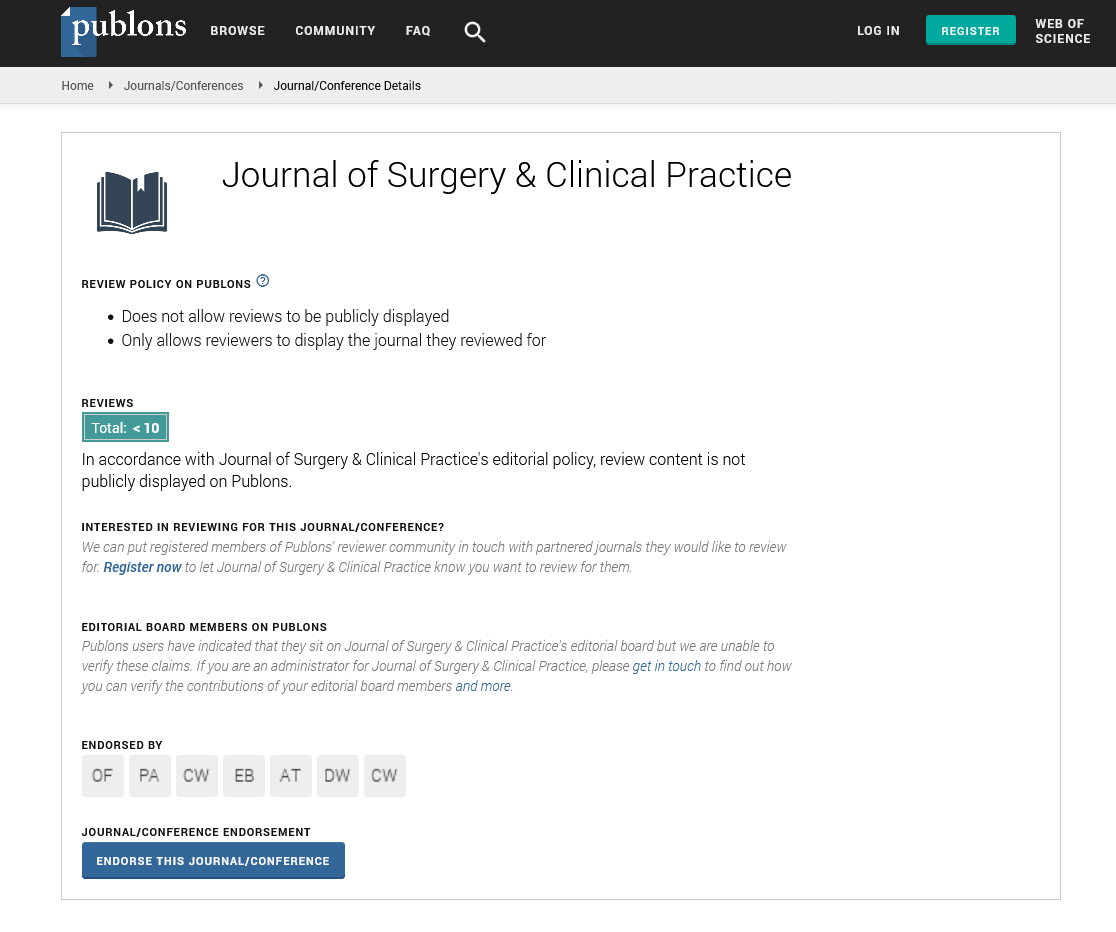Commentary, J Surg Clin Prac Vol: 7 Issue: 2
Risks and Management of Colorectal Disorders by Colon and Rectal Surgery
Arnar Geirsson*
Department of General Surgery, Johns Hopkins Hospital, Maryland, USA
*Corresponding Author: Arnar Geirsson
Department of General Surgery, Johns
Hopkins Hospital, Maryland, USA
E-mail: arnar@med.edu
Received date: 23 May, 2023, Manuscript No. JSCP-23-107195;
Editor assigned date: 26 May, 2023, PreQC No. JSCP-23-107195 (PQ);
Reviewed date: 12 June, 2023, QC No. JSCP-23-107195;
Revised date: 19 June, 2023, Manuscript No. JSCP-23-107195 (R);
Published date: 26 June, 2023 DOI: 10.35248/JSCP.23.7.100383
Citation: Geirsson A (2023) Risks and Management of Colorectal Disorders by Colon and Rectal Surgery. J Surg Clin Prac 7:2.
Description
Colon and rectal surgery, also known as colorectal surgery is a specialized field of surgery focused on the diagnosis and treatment of conditions affecting the colon, rectum, and anus. It encompasses a wide range of surgical procedures helps in improving the health and well-being of individuals with colorectal diseases. Colon and rectal surgery is indicated for various conditions, including colorectal cancer, diverticulitis, inflammatory bowel disease (such as Crohn's disease or ulcerative colitis), anal fistulas, hemorrhoids, and rectal prolapse. The decision to undergo surgery is based on several factors, including the severity of the condition, response to conservative treatments, the presence of complications and the patient's overall health. Colectomy is the surgical removal of all or part of the colon. Colectomy may involve removal of a segment of the colon (partial colectomy) or the entire colon (total colectomy). In some cases, the surgeon may create an ostomy, such as an ileostomy or colostomy, to divert the fecal stream.
Surgery is the primary treatment for colorectal cancer and may involve various procedures depending on the stage and location of the tumor. These procedures include tumor resection, lymph node dissection, and, in some cases removal of nearby structures. Minimally invasive techniques, such as laparoscopic or robotic-assisted surgery, are increasingly utilized, offering advantages such as smaller incisions and faster recovery.
Anal fistulas are abnormal tunnels that form between the anal canal and surrounding tissues. Surgery is often required to treat anal fistulas and involves draining the tract, removing infected tissue, and promoting healing. Various surgical techniques, such as fistulotomy, advancement flap repair or placement of setons, may be employed depending on the characteristics of the fistula. Hemorrhoidectomy is the surgical removal of hemorrhoids, swollen blood vessels in the rectum or anus. This procedure is indicated for severe or recurrent hemorrhoids that do not respond to conservative treatment measures. Hemorrhoidectomy may involve excision of the hemorrhoids or the use of techniques such as stapled hemorrhoidopexy.
Following colon and rectal surgery, appropriate postoperative care is essential to ensure optimal healing and recovery. Patients may experience discomfort, swelling, or temporary changes in bowel habits after surgery. Pain management, wound care, and monitoring for potential complications, such as infection or bleeding, are crucial during the postoperative period. Dietary modifications, including a gradual return to a normal diet, may be recommended. In some cases, additional treatments, such as adjuvant chemotherapy or radiation therapy, may be required particularly in cases of colorectal cancer. This surgery has shown excellent outcomes in the management of colorectal conditions. The specific outcomes depend on the nature of the condition being treated, the stage of the disease, the patient's overall health, and the surgical approach employed. Advances in surgical techniques, such as minimally invasive approaches and robotic-assisted surgery, have resulted in reduced postoperative pain, shorter hospital stays, faster recovery, and improved cosmetic outcomes for patients. Moreover, surgery plays a crucial role in the treatment of colorectal cancer, with surgery alone or in combination with other treatments offering favorable survival rates and improved quality of life. Through advancements in surgical techniques, postoperative care, and multidisciplinary approaches, colon and rectal surgery continues to evolve offering patient’s better outcomes, improved quality of life and the hope of overcoming colorectal diseases.
 Spanish
Spanish  Chinese
Chinese  Russian
Russian  German
German  French
French  Japanese
Japanese  Portuguese
Portuguese  Hindi
Hindi 
